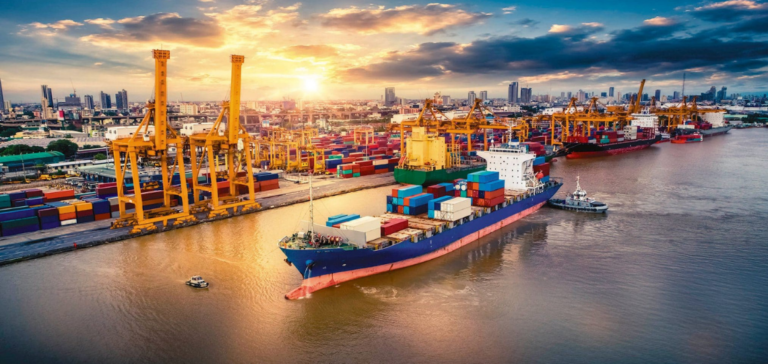The sea freight sector, which is particularly polluting, plans to become a major player in the ecological transition. The International Chamber of Shipping (ICS), representing 80% of the world’s merchant fleet, expresses its determination to contribute to more environmentally-friendly solutions.
Maritime Transport Ready for the Ecological Transition
Guy Platten, Secretary General of the ICS, stressed in an interview with AFP that shipping is ready to adapt to the ecological transition and no longer be a brake on reducing carbon emissions. This declaration comes in the context of a summit coordinated by the ICS, which will bring together representatives of the maritime industry and governments on December 10 in Dubai, on the sidelines of COP28.
Ambitious targets and criticism from NGOs
In July, the UN’s International Maritime Organization (IMO) promulgated an international agreement aimed at decarbonizing the maritime sector, which, according to the Institut Supérieur d’Economie Maritime (Isemar), is recognized as polluting more than air transport. The agreement sets ambitious targets, including carbon neutrality by 2050 and a reduction of at least 40% in CO2 emissions by 2030 compared with 2008.
However, environmental NGOs have criticized these targets as insufficient. They call for binding targets, including a 50% reduction in carbon emissions by 2030 and carbon neutrality by 2040. Guy Platten defends ICS’s ambitions and stresses the importance of putting them into practice.
Innovation at the heart of the transition
ICS believes that innovation will be crucial to the sector’s transition. Among the solutions envisaged, the organization highlights the “critical” need for green fuels produced on a large scale. Tests on less-polluting ammonia engines are underway, and engines using this technology could be operational as early as next year. And Danish shipping giant Maersk recently unveiled the world’s first bio-methanol-powered vessel, as part of its strategy to phase out diesel.
Guy Platten even sees nuclear power as a possible option for the future of shipping. He points out that despite a 40% increase in the number of ships in 15 years, CO2 emissions have fallen by 14%, thanks to the increased energy efficiency of modern ships.
The sea freight sector is mobilizing to play a major role in the ecological transition. The International Chamber of Shipping’s (ICS) commitment to low-carbon fuels and technological innovation shows that the maritime industry is ready to contribute to reducing carbon emissions and preserving the environment.






















